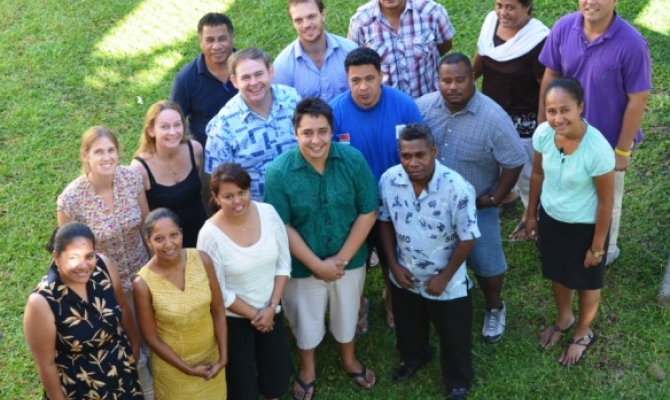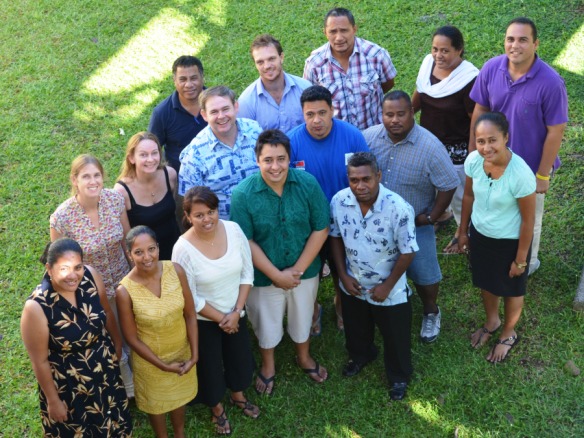
1 November, 2012 - Seven Pacific island countries have completed a Cost Benefit Analysis under the Pacific Adaptation to Climate Change Project, the outcomes of which are being shared at a meeting in Apia this week.
The aim of a Cost Benefit Analysis is to help improve the selection and design of an adaptation project through careful evaluation of all factors involved when developing a project. The outcomes can help guide the project design and ensure that sound adaptation options are selected that will deliver maximum benefits to Pacific Island communities.
The Cook Islands, Marshall Islands, Niue, Palau, Tuvalu, Samoa and the Solomon Islands are delivering the outcomes of their CBA reports this week to share knowledge and lessons learnt based upon their experiences. They will also learn more about the best way to communicate these results to key stakeholders.
“I think the workshop is really useful and informative and it’s provided a great deal of information about how best to use CBA’s in the implementation of not just the PACC project but almost any other project,” said Madelsar Ngraingas of Palau
“The Cost Benefit Analysis provides a strong case for whether or not the approach and design that we are using in the PACC project implementation is going to be meaningful and productive for our purposes. It has already helped as we have adjusted our project based upon the recommendations from the CBA report.”
A series of trainings on Cost Benefit Analysis for the PACC projects began in November last year to help enable countries to carry out their own analysis with support from the Secretariat of the Pacific Regional Environment Programme (SPREP). The training has also helped strengthen Pacific ability to conduct CBA’s with other project also.
“This is a successful end for this programme which is a new milestone for the Pacific Adaptation to Climate Change Project,” said Acting Director Kosi Latu.
“It’s also important that you communicate these findings with others, that we strengthen our ability to communicate results as this will help the PACC move forward to new areas, eventually building our own local capacity to adapt to climate change.”
The PACC is a regional project in 14 different Pacific island countries and territories that aims to help build capacity to adapt to climate change in the areas of Coastal Zone Management, Food Production and Food Security and Water Resource Management.
PACC aims to help mainstream climate change risks into key decisions in national sustainable development programmes; will develop a pilot project activity such as building of infrastructure that is guided by vulnerability assessments and the CBA as well as; provide technical and communications support.
Funding for the PACC Cost Benefit Analysis Conclusion workshop is from a range of partners including the Global Environment Facility and the Australian Government implemented through the UNDP and SPREP under the PACC Project, the Commonwealth Secretariat and the Pacific Climate Change Science and Adaptation Planning Project.
The importance of this workshop is evident from the many resource people that funded their own attendance; the Applied Geoscience and Technology Division (SOPAC) of the Secretariat of the Pacific Community; the Secretariat of the Pacific Community and GIZ, and; the Pacific Islands Forum Secretariat.
The workshop is held in Apia, Samoa from 30 October to 2 November, 2012.
For more information please contact: Mr. Aaron Buncle, the Environmental Resource Economist at SPREP [email protected]
